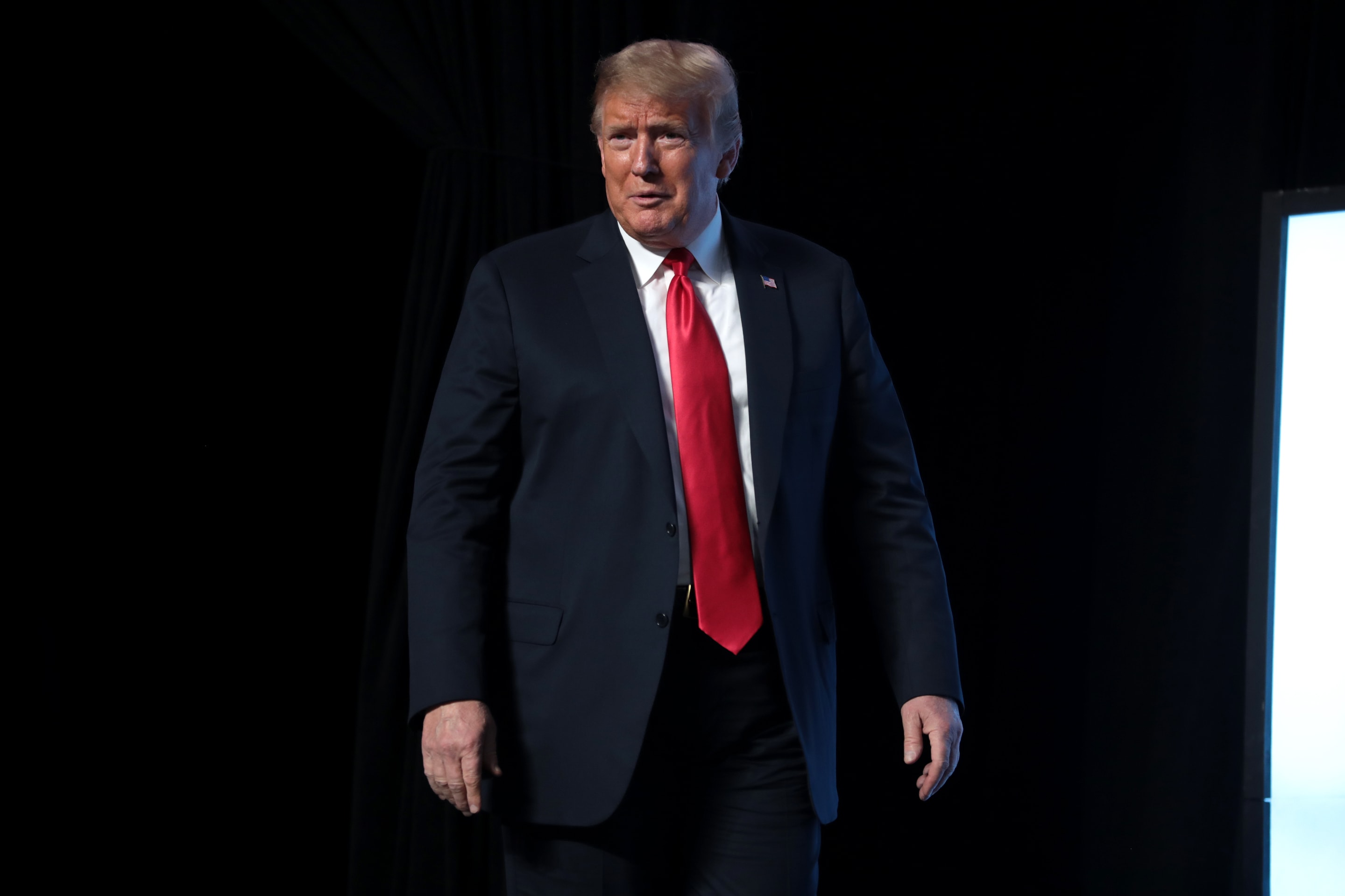
Does the U.S. Need to Prohibit Advanced Technology Exports That Could Aid China’s Persecution of Uighur Muslims? (H.R. 1025)
Do you support or oppose this bill?
What is H.R. 1025?
(Updated February 27, 2020)
This bill — known as the UIGHUR Act — would aim to counter the mass arbitrary detention of Turkic Muslims, including Uighurs, in “political reeducation” camps by the Chinese government in the Xinjiang region. It would require federal agencies to produce reports related to the persecution in Xinjiang (described in greater detail below), block exports of technologies that could further that persecution, consider imposing sanctions on officials & entities involved, and pressure the Chinese government to stop the repression through various diplomatic efforts.
The bill begins by listing several findings about the persecution of the 13 million Uighurs and other Muslim ethnic minorities in Xinjiang, including:
That the United Nations Committee on the Elimination of Racial Discrimination has estimated that roughly 1 million ethnic or religious minorities are being arbitrarily detained in “political reeducation” camps.
That the arbitrary detention of persons based on their religious or ethnic background, without due process or credible individualized allegations of wrongdoing are a severe violation of international norms and standards.
The State Dept. would be directed to advocate for the release of detainees, an end to the use of “political reeducation” camps, and the immediate cessation of government persecution against the Uighurs and predominantly Muslim ethnic minorities in meetings with the Chinese government. The agency, along with other federal agencies, would conduct a study to document the systematic detention that would also detail detainment facility locations, estimates of the number of people detained, a timeline of the escalation in discrimination against Turkic Muslims, and interviews from former detainees (to the greatest extent possible).
The bill would require the executive branch to conduct advocacy at the United Nations, with Central Asian governments, and other appropriate foreign governments to condemn the persecution of Turkic Muslims.
The executive branch would be encouraged to consider levying sanctions against senior Chinese officials in the Xinjiang region under the Magnitsky Act.
Federal agencies would be restricted from using a foreign person or entity involved with the mass detention in Xinjiang for procuring goods or services under a federal contract. Exports to China or entities involved in the persecution in Xinjiang that could be used in mass surveillance — such as machine learning technology, artificial intelligence, or biometric technology — would be prohibited. Entities looking to engage in transactions with Xinjiang authorities would have to request approval from the Commerce Dept. and could only receive a waiver if China stops its persecution or a specific transaction would undermine U.S. national security.
The bill would also state that it’s U.S. policy to oppose intimidation of journalists and call on China to allow free movement of journalists and their families throughout Xinjiang. Radio Free Asia would be directed to overcome the jamming of its radio signal by China and expand its availability in the Uighur language. The U.S. Agency for Global Media would be directed to applaud reporters who in their independent journalistic discretion pursue reporting related to human rights in Xinjiang and recognize the importance of widely distributed news content regarding human rights issues in Xinjiang.
The bill’s full title is the Uighur Intervention and Global Humanitarian Unified Response (UIGHUR) Act of 2019.
Argument in favor
The Chinese government is engaged in ongoing and severe human rights violations against Turkic Muslims, including Uighurs, in the Xinjiang region that feature an Orwellian surveillance state and mass detention in “political reeducation” camps. The U.S. should take diplomatic and economic steps to end the persecution in Xinjiang.
Argument opposed
Congress shouldn’t try to tie the hands of the executive branch as it engages in diplomacy with China. The reports required by this bill could further weaken the U.S.-China diplomatic relationship amid an ongoing trade dispute and tensions over North Korea’s nuclear program.
Impact
The Uighurs and other predominantly Turkic Muslim ethnic minorities persecuted in Xinjiang; the Chinese government and its relations with the U.S.; relevant federal agencies; and Congress.
Cost of H.R. 1025
A CBO cost estimate is unavailable.
Additional Info
In-Depth: Rep. Brad Sherman (D-CA) reintroduced this bill to mobilize U.S. diplomatic and economic tools to stop the persecution of the Uighur Muslims and other ethnic minorities by China in the Xinjiang region:
“Beijing thinks we will turn a blind eye as it targets Turkic Muslims around the world. We must prove them wrong. By preventing companies from profiting off of human rights violations and mandating increased transparency, this legislation will send more than a powerful message. It will also create meaningful tools for the United States to hold China accountable.”
Original cosponsor Rep. Ted Yoho (R-FL) added:
“Cutting-edge technologies should be used to lift up, not oppress humanity. The existence of mass detention centers - renamed ‘political re-education’ camps - in China, is unacceptable. We must hold the perpetrators of these gross human rights violations accountable.”
The Trump administration drafted a policy sanctioning Chinese officials and companies involved in the internment camps, but it failed to get through an interagency review process because of concerns by the Treasury Dept. that it could have an adverse impact on trade talks. Secretary of State Mike Pompeo hasn’t indicated whether the U.S. intends to pursue sanctions for the persecution in Xinjiang.
This legislation has the support of 23 bipartisan cosponsors, including 18 Democrats and five Republicans.
Of Note: Human rights experts say that between 800,000 to 2 million Muslims have been detained indefinitely in reeducation camps since April 2017 because the Chinese Communist Party views them as a potential extremist or separatist threat. Detainees are interned without due process in the camps, where they are subjected to communist propaganda, forced to renounce Islam, and in some cases are beaten and tortured.
And the crackdown extends beyond the reeducation camps as well, with political and cultural indoctrination occurring in schools and authorities using compulsory collection of biometric data (like DNA & voice samples), artificial intelligence, big data, and movement restrictions to control the population. A Human Rights Watch report notes that the “human rights violations in Xinjiang today are of a scope and scale not seen in China since the 1966-1976 Cultural Revolution”, and explains the motivation behind it:
“Authorities have sought to justify harsh treatment in the name of maintaining stability and security in Xinjiang, and to “strike at” those deemed terrorists and extremists in a “precise” and “in-depth” manner. Xinjiang officials claim the root of these problems is the “problematic ideas” of Turkic Muslims. These ideas include what authorities describe as extreme religious dogmas, but also any non-Han Chinese sense of identity, be it Islamic, Turkic, Uyghur, or Kazakh. Authorities insist that such beliefs and affinities must be “corrected” or “eradicated.”
Media:
Amnesty International (In Favor)
Summary by Eric Revell
(Photo Credit: Claudia Himmelreich via Wikimedia / Creative Commons)The Latest
-
 IT: 🛢️ New Vermont measure could charge Big Oil for climate damages, and... Do you think Trump is guilty?Welcome to Friday, May 10th, friends... Vermont could be one of the first states to hold Big Oil accountable for the damages read more...
IT: 🛢️ New Vermont measure could charge Big Oil for climate damages, and... Do you think Trump is guilty?Welcome to Friday, May 10th, friends... Vermont could be one of the first states to hold Big Oil accountable for the damages read more... -
 Stormy Daniels Takes the Stand in Trump Hush Money TrialUpdated May 9, 2024, 5:00 p.m. EST Adult film star Stormy Daniels, also known as Stephanie Clifford, spent two days on the stand read more... Law Enforcement
Stormy Daniels Takes the Stand in Trump Hush Money TrialUpdated May 9, 2024, 5:00 p.m. EST Adult film star Stormy Daniels, also known as Stephanie Clifford, spent two days on the stand read more... Law Enforcement -
 Vermont Measure to Charge Big Oil for Climate DamagesWhat’s the story? Vermont is expected to become one of the first states to hold Big Oil accountable for the damages caused by read more... Environment
Vermont Measure to Charge Big Oil for Climate DamagesWhat’s the story? Vermont is expected to become one of the first states to hold Big Oil accountable for the damages caused by read more... Environment -
 IT: Trump's 2016 'deny, deny, deny' campaign strategy, and... How can you help the civilians of Ukraine?Welcome to Wednesday, May 8th, weekenders... As Trump's hush money trial enters it's third week, the 2016 campaign strategy of read more...
IT: Trump's 2016 'deny, deny, deny' campaign strategy, and... How can you help the civilians of Ukraine?Welcome to Wednesday, May 8th, weekenders... As Trump's hush money trial enters it's third week, the 2016 campaign strategy of read more...
 Climate & Consumption
Climate & Consumption
 Health & Hunger
Health & Hunger
 Politics & Policy
Politics & Policy
 Safety & Security
Safety & Security
